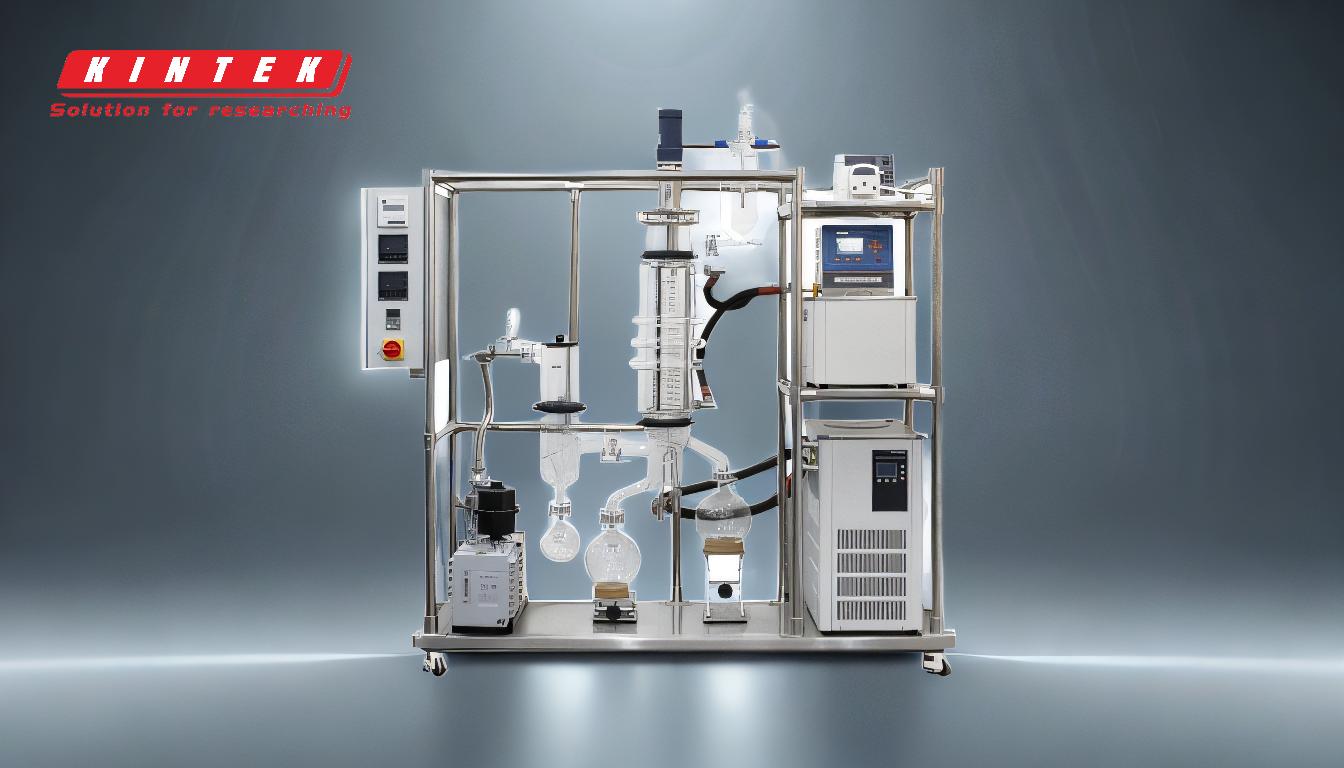Distillation plays a critical role in pharmaceutical engineering, serving as a cornerstone for various processes such as purification, separation, and formulation of active pharmaceutical ingredients (APIs) and other compounds. It is particularly vital for handling heat-sensitive materials, ensuring the integrity and efficacy of pharmaceutical products. Applications include solvent swapping, crystallization, removal of volatile impurities, and the production of essential compounds like vitamins and amino acids. Distillation techniques such as molecular distillation, short path distillation, and vacuum distillation are employed to achieve high purity levels, making them indispensable in the development of medicines, skincare products, and other pharmaceutical formulations.
Key Points Explained:

-
Purification of Active Pharmaceutical Ingredients (APIs):
- Distillation is used to purify APIs by separating them from impurities, solvents, or by-products. This ensures the final product meets stringent quality and safety standards.
- Techniques like molecular distillation are particularly effective for heat-sensitive compounds, preventing degradation during the purification process.
-
Solvent Swapping and Removal:
- In pharmaceutical manufacturing, solvents are often used during synthesis or extraction. Distillation helps replace or remove these solvents, ensuring the final product is free from residual solvents that could compromise safety or efficacy.
- This process is crucial for creating concentrated solutions of APIs.
-
Separation of Chemical Compounds:
- Distillation enables the separation of complex mixtures into individual components, which is essential for isolating specific compounds required for drug formulations.
- For example, it is used to separate and purify vitamins like Vitamin E, which are widely used in skincare and pharmaceutical products.
-
Crystallization and Drying:
- Distillation aids in the crystallization process by removing water or other solvents, resulting in pure crystalline forms of pharmaceutical substances.
- It is also used for drying APIs, ensuring they are free from moisture, which can affect stability and shelf life.
-
Production of Essential Compounds:
- Distillation is employed to produce critical compounds such as amino acid esters, polymer intermediates, and vitamins. These compounds are foundational in creating medicines, skincare products, and nutritional supplements.
- For instance, Vitamin E, a popular ingredient in skincare, is often purified using short path distillation.
-
Formulation of Topical Products:
- Distillation is used to incorporate active ingredients into creams, lotions, and ointments. This ensures uniform distribution and stability of the active components in the final product.
- It is also used to dissolve pharmaceutical substances in solutions for topical applications, including pet products.
-
Handling Heat-Sensitive Materials:
- Techniques like molecular distillation and vacuum distillation are specifically designed to process heat-sensitive compounds without causing thermal degradation.
- This is particularly important for organic and silicon-based compounds that degrade at high temperatures.
-
Industrial-Scale Purification:
- Distillation is used on an industrial scale to purify liquid products obtained from chemical synthesis, ensuring high purity and consistency across large batches.
- This is critical for maintaining the quality of pharmaceutical products manufactured in bulk.
-
Applications Beyond Pharmaceuticals:
- While the focus is on pharmaceutical engineering, distillation also has applications in water purification, oil stabilization, and the production of perfumes and flavorings, showcasing its versatility.
-
Role in Innovation and Development:
- Distillation techniques continue to evolve, enabling the development of new pharmaceutical formulations and improving the efficiency of existing processes.
- For example, advancements in vacuum distillation have enhanced the ability to process high-boiling-point liquids with greater precision.
In summary, distillation is a versatile and indispensable tool in pharmaceutical engineering, enabling the purification, separation, and formulation of a wide range of compounds. Its ability to handle heat-sensitive materials and achieve high purity levels makes it essential for producing safe and effective pharmaceutical products.
Summary Table:
| Application | Key Role |
|---|---|
| Purification of APIs | Separates impurities and solvents, ensuring high-quality pharmaceutical products. |
| Solvent Swapping | Removes or replaces solvents to create concentrated API solutions. |
| Separation of Compounds | Isolates specific compounds like Vitamin E for drug and skincare formulations. |
| Crystallization and Drying | Removes solvents to produce pure crystalline forms and moisture-free APIs. |
| Production of Essential Compounds | Creates amino acid esters, vitamins, and polymer intermediates. |
| Handling Heat-Sensitive Materials | Prevents thermal degradation using molecular and vacuum distillation. |
| Industrial-Scale Purification | Ensures high purity and consistency in large-scale pharmaceutical production. |
Interested in optimizing distillation for your pharmaceutical processes? Contact us today to learn more!










